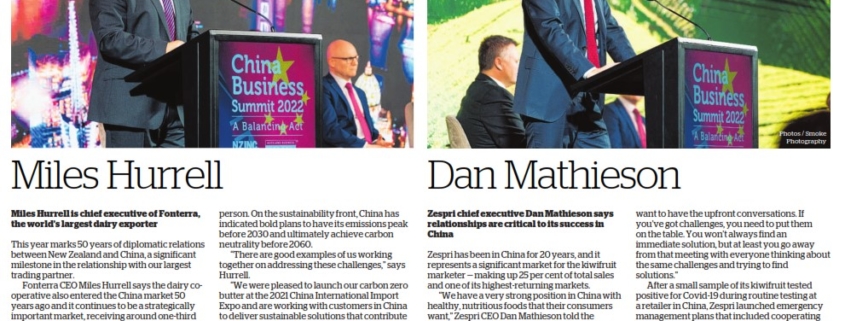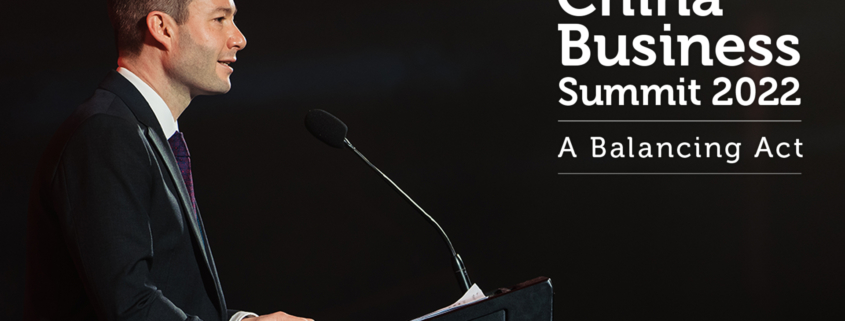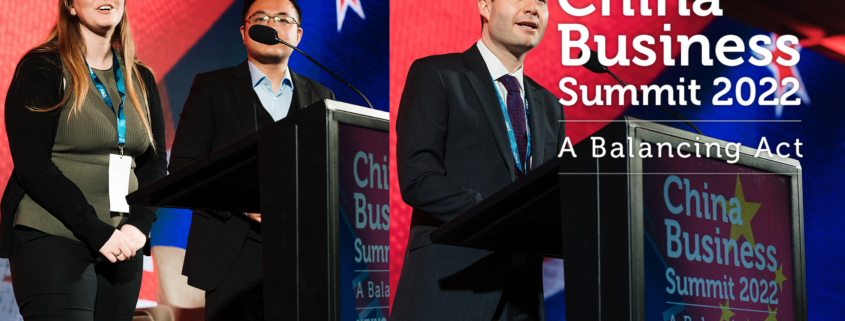Zespri has been in China for 20 years, and it represents a significant market for the kiwifruit marketer — making up 25 per cent of total sales and one of its highest-returning markets.
“We have a very strong position in China with healthy, nutritious foods that their consumers want,” Zespri CEO Dan Mathieson told the summit.
In the early days of its relationship with China, Zespri operated from a distance and had no real understanding of the intricacies of the market. “Fast forward to today, we now have 100 people in China across all of the critical elements of partnership building, and that serves us in very good stead,” Mathieson says.
That partnership building includes a shift from Zespri being a “value taker” in the early years of the relationship, to now investing in China itself. “In the last decade we’ve really doubled down our focus on social contribution and trying to work in a sustainable way with our partners in China — and there’s a lot more of that to come.”
Mathieson says it is the strength of the relationships Zespri has in China that has enabled it to overcome challenges in recent years.
“We were nervous about engaging with Chinese officials and partners for a long time. We didn’t understand each other and tiptoed around issues. But we now understand that we want to have the upfront conversations. If you’ve got challenges, you need to put them on the table. You won’t always find an immediate solution, but at least you go away from that meeting with everyone thinking about the same challenges and trying to find solutions.”
After a small sample of its kiwifruit tested positive for Covid-19 during routine testing at a retailer in China, Zespri launched emergency management plans that included cooperating with relevant government agencies to trace the product shipment. “It was the relationships with our partners in China and with government agencies that alerted us to the issues quickly and gave us the space to respond and minimise disruption to our sales and reputational damage to the brand.”
Another significant challenge for the business has been the lockdowns in Shanghai.
Within six weeks, Zespri had to divert all its vessels from the Shanghai Port to another port a few hours down the coast. “Normally that does not happen — there is a lot of process and procedure to go through,” Mathieson says. “But the relationships we built up over nearly two decades helped us to move quickly and successfully import the same amount of kiwifruit.”
Mathieson says Zespri’s relationships will be essential to helping it continue to expand its sales in China in second, third and fourth-tier cities. It plans to double its current sales volumes by 2030 and expects online sales to expand from 30 per cent to 50 per cent.
 In this local body election, what if we could do a little more than a tick and a prayer?
In this local body election, what if we could do a little more than a tick and a prayer?









